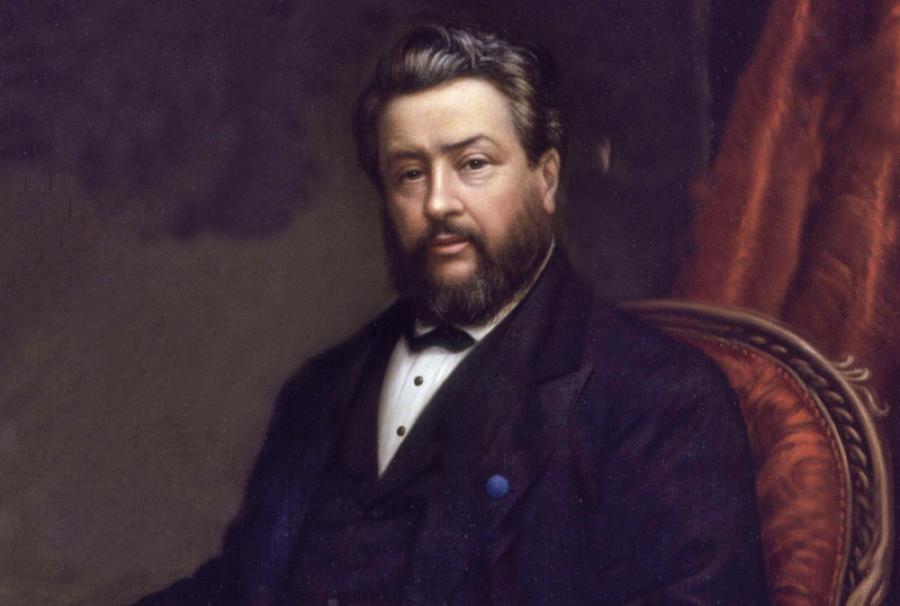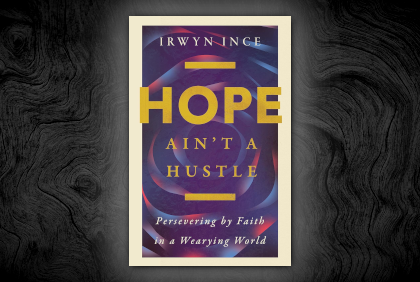Spurgeon on “Reconciling” God’s Sovereignty and Human Responsibility
Image

There has been no shortage of debate amongst Christians about the relationship between divine sovereignty and human responsibility. Because of our finite perspective —and our insistence on having a theology that logically makes sense to us—we are tempted to downplay, diminish, or even outright reject one of these truths in favor of the other. In his little book, A Defense of Calvinism, Charles Spurgeon cautions us against this error:
Not a Straight Line
The system of truth revealed in the Scriptures is not simply one straight line, but two; and no man will ever get a right view of the gospel until he knows how to look at the two lines at once. For instance, I read one Book of the Bible, “The Spirit and the Bride say, Come. And let him that heareth say, Come. And let him that is athirst come. And whosoever will, let him take the water of life freely.” Yet I am taught, in another part of the same inspired Word, that “it is not of him that willeth, nor of him that runneth, but of God that sheweth mercy.” I see, in one place, God in providence presiding over all, and yet I see, and I cannot help seeing, that man acts as he pleases, and that God has left his actions, in a great measure, to his own free will. Now, if I were to declare that man was so free to act that there was no control of God over his actions, I should be driven very near to atheism; and if, on the other hand, I should declare that God so over-rules all things that man is not free enough to be responsible, I should be driven at once to Antinomianism or fatalism.
Converging at the Throne of God
Spurgeon continues,
That God predestines, and yet that man is responsible, are two facts that few can see clearly. They are believed to be inconsistent or contradictory to each other. If, then, I find taught in one part of the Bible that everything is fore-ordained, that is true; and if I find, in another Scripture, that man is responsible for all his actions, that is true; and it is only my folly that leads me to imagine that these two truths can ever contradict each other. I do not believe they can be welded into one upon any earthly anvil, but they certainly shall be in eternity. They are two lines that are so neatly parallel, that the human mind which pursues them farthest will never discover that they converge, but they do converge, and they will meet somewhere in eternity, close to the throne of God, whence all truth doth spring.
May the Lord grant us humility to embrace the truths of His Word, even when we cannot fully understand or comprehend how those truths might “work” or fit together.
Rooted Thinking Articles
Reposted from Rooted Thinking.
Micah Colbert bio
Micah is the discipleship and outreach pastor at Community of Grace Church in Buffalo, NY. He is also the author of two outreach books: Good News for All Nations and Discovering Hope. Micah enjoys reading, coffee, hearty conversations, and time spent with his wife and four children.
- 476 views
One of the things I’ve always appreciated about Spurgeon: He was always very thoughtful, but never let himself get to far from “conditions on the ground,” so to speak. He seems to have been a very practical guy, without becoming pragmatic.
Views expressed are always my own and not my employer's, my church's, my family's, my neighbors', or my pets'. The house plants have authorized me to speak for them, however, and they always agree with me.
When I read that from Spurgeon many years ago, I took from it, I think properly, that what he wrote about God's sovereignty and human responsibility is true of many doctrines. There is a tension in many doctrines where two things seem contradictory, yet they both are taught by Scripture. Doctrinal error has often come when one has embraced one thing at the expense of the other.
Agree. On the other hand, there’s the path of just not trying. I’ve seen some “overthink” doctrines with the result that they pretty much clobber one truth in order to try to fully develop another. On the other hand, I’ve seen the shrug response. I’m not going to say that’s always wrong. Digging deep in theology isn’t for everyone. But we also shouldn’t be lazy about comparing Scripture with Scripture and seeking to understand how things fit together. I think we always have to do it with “appropriate levels of certainty,” though, to borrow a phrase.
Views expressed are always my own and not my employer's, my church's, my family's, my neighbors', or my pets'. The house plants have authorized me to speak for them, however, and they always agree with me.



Discussion